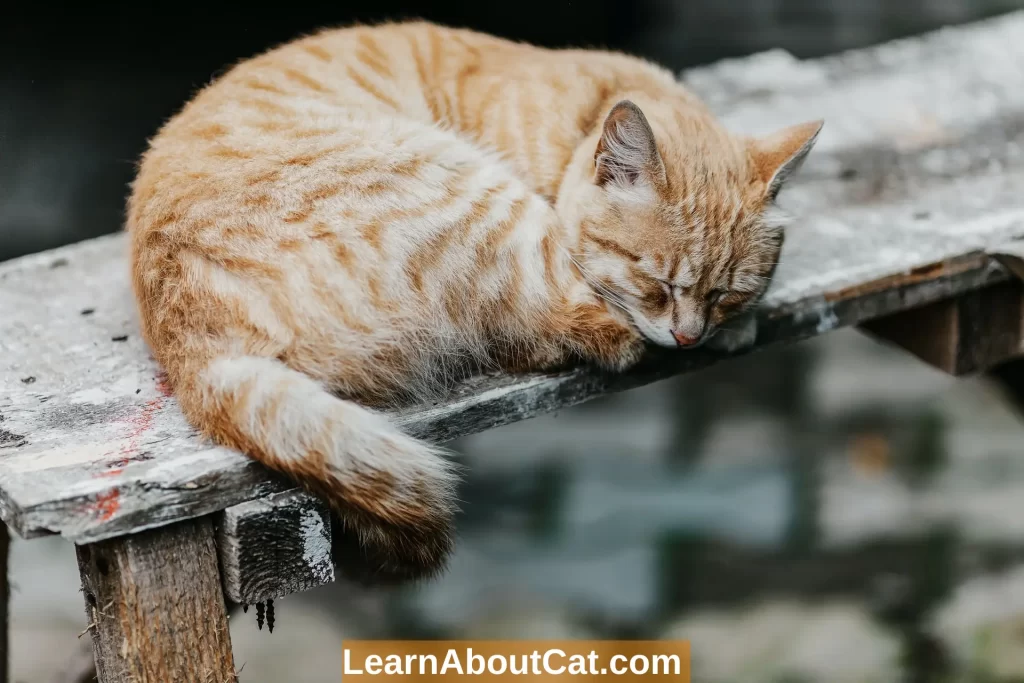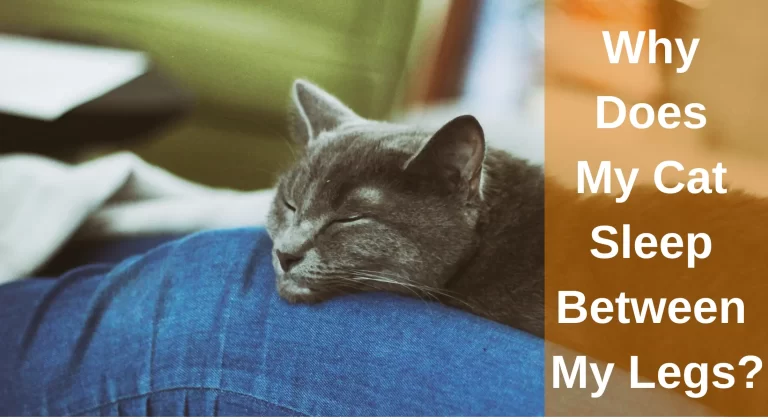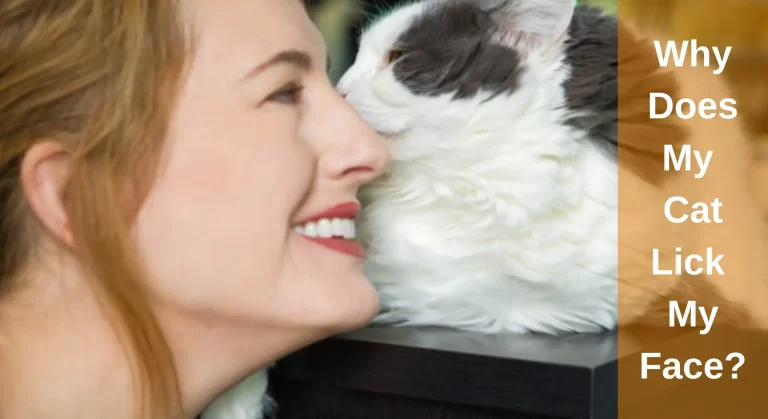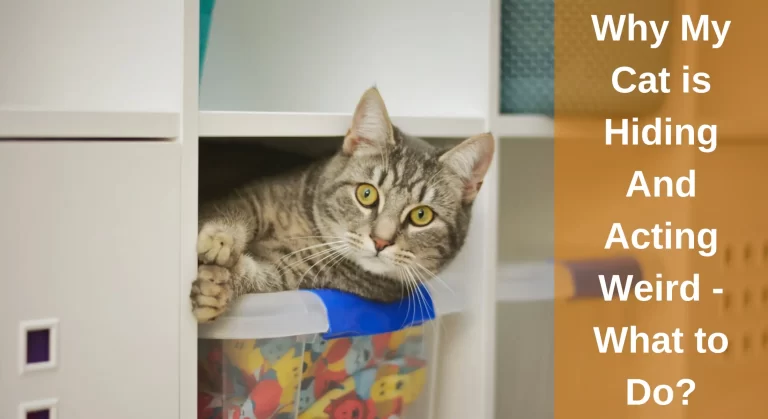Do Cats Get Lonely? How to Keep Cat Entertained at Home?
Despite cats’ reputation, they grow lonely when left alone for extended periods. They are gregarious creatures who build close attachments to their owners. Cats might feel depressed if their demand for a company isn’t addressed. Separation anxiety is a possibility for them.
Do Cats Get Lonely? Because of the bonds they develop Yes, cats may feel lonely. Even though they are solitary creatures, cats require stimulation and interaction as much as humans do. While every cat is different in terms of personality and requirements.
There are a variety of ways cats express themselves, including vocalizing, aggressive behaviour, kneading, headbutting, overgrooming, destructiveness and staring look for these indications if your cat is lonely.
Taking care of your cat’s health is one of your duties as a cat lover. Cats don’t stay in packs like dogs, but they can’t stay alone either. Keeping a lonely cat company can keep them happy and healthy. Here are some signs of loneliness that will help you identify them.

How Do You Tell if Your Cat is Lonely? Signs of Cat Loneliness
There is a reputation among cat parents that cats hide their feelings a lot. While your kitty expresses many emotions in their own unique way, you’ll notice that they also display many other emotions. The following symptoms can indicate loneliness and depression, as well as separation anxiety:
1. Overgrooming
Lonely cats typically pluck out their hair or over-groom themselves. Cats are naturally meticulous groomers when your cat seems to be obsessively grooming himself, it could indicate that he is lonely.
2. Destructiveness
Lonely cats are bored cats, and they have a knack for coming up with innovative (and destructive) methods to keep their brains occupied!
Destructive behaviour, whether it’s destroying your furniture, climbing your drapes, or shredding your toilet paper, is almost always an indication of loneliness in your cat.
3. Vocalization At Its Most Extreme
Some cats are naturally talkative, but if your generally quiet cat becomes extremely chatty. Increased vocalization can indicate loneliness on your cat’s part.
The chattiness of cats increases when you come home from work or are alone or when there is no one to play with. it might be his way of requesting a bit of extra attention.
4. Problems With The Litter Box
If your cat is spraying or sitting outside the litter box, it’s always a good idea to rule out medical issues first since this might indicate renal or urinary tract problems.
If your kitty has a clean bill of health but continues to go about his business in places he knows he shouldn’t, he may be trying to tell you something.
5. Increase in Sleeping
As nocturnal animals, cats sleep most of the day. However, your cat may be feeling lonely or depressed if it is sleeping more than usual. Loneliness is indicated if your cat is not interested in playing with you and just sleeps.
Check Out: Why Is My Cat Sleeping More Than Usual?
6. Aggressive Behaviour
The loneliness of a cat sometimes causes it to act out when it is aware that its person is about to leave them. The reason your cat seems aggressive or hostile when you’re leaving is not that he wants you gone – it’s because he wants more time with you!
Your pet may get bored if it doesn’t have a feline companion or a playmate to interact with, which will stimulate destructive behaviour to release the stored energy. When your cat displays signs of aggressive behaviour, then it might be because it is lonely. You might end up with scratched furniture and broken items.
How Long You Can Leave A Cat Alone?
The cat’s nature and habits will determine how long you can leave them alone. Environment, health, and age are also influences. Based on the age of your cat, here’s a reasonable estimate of how long you may leave them alone:

- Approximately 2-4 hours of loneliness is more than enough for cats of 16 weeks and under.
- Cats about 5 months can’t live alone for more than 5 hours.
- 6 months cats can spend around 8 hours.
- Adult physically fit cats can survive for 1-2 days on their own. But this is the absolute maximum length of time you should leave your cat alone at home. It would be best if you had someone check on them when this period has passed.
Do Cats Miss Their Owners When They Are Alone?
Fortunately, research indicates that cats may build emotional bonds with their owners and miss them when they are not there. Cats, unlike dogs, do not consistently demonstrate their want to be with their owners.
There are, however, some telltale signals that your cat is missing you while you’re gone. They are sympathetic or warmhearted, and they may repeatedly paw at you, meow, or howl.

If your cat participates in disruptive activities such as stopping grooming themselves, appetite loss, crying uncontrollably, disposing of home goods, excessive grooming, or relentlessly seeking the attention of the owner; if she is not using the litter box when you’re not home, it might be an indication that they are missing you.
Also Read: What Do Cats Think About All Day?
Is Your Cat Dissatisfied With Its Current Situation When Alone?
When your cat is alone at home, does it become boring? Many indoor cats miss the distractions that the outer world may provide, despite being kept protected from the hazards of the outside world.
You should provide them with enrichment options like the best cat toys, scratching posts, and puzzle feeders to keep cats interested.
How to Keep Cat Entertained When Home Alone?
It is important to give a cat mental stimulation as well as meet its physical needs when leaving it alone for an extended period of time. If you’re away from home for an extended period of time, boredom and loneliness can both affect cats.
The good news is there are steps you can take to help your cat feel comfortable and content without you. Whether you’re in the office or out running errands, you can take measures to help your cat feel comfortable and content.

1. Cat Toys
To keep their curiosity piqued, engage them by playing with their toys. Teaser toys are an excellent way to spend quality time with your cat. They’re as basic as a stick and some thread with a feather or a bell attached but flinging them in front of your cat can pique their interest in hunting.
They also like to play with a simple cardboard box or around the kitchen with anything new in their environment.
2. Give Them A Platform To Work On
Another result of restlessness is cats’ urge to leap on top of shelves and cabinets. This is inconvenient, especially if you have ornaments, books, or other items that you’d like not to have dismantled every time your cat jumps.
One way to avoid this is to leave some shelves empty, preferably near a window so they can look out. Some ambitious people have even built indoor playgrounds.
3. Allow Them To Look Around
Surprisingly, cats like watching the world from the luxury of their own house and will gaze out the windows at any action taking place outside for hours. Make sure your cat has access to rooms with windows so they can keep an eye on what’s going on in their neighbourhood.
Place a cat tower near a window to provide them with a high platform to observe the neighbours. In addition, bird feeders, puzzle feeders, trees for entertainment, television shows, Feeders with a puzzle, Scratching posts in the vertical direction, pet cameras, some rewards, or adding a new cat to the household.
4. Allow Natural Light To Enter
Undoubtedly, cats adore the sun, as you may or may not have observed. Few things make them happier than being warm, and sleeping in the sun’s full light appears to be one of them.
To do this, keep your curtains open during the day in sections of the house where it is particularly strong.
5. Obtain A Feline Or An Individual For Them
If you’ve recently spent a lot of time at home and are now going out again, your cat may become lonely, so companionship is an excellent way to keep your cat occupied. Have someone you trust come over during the day while you’re engaged.
6. Cosy and Comfortable Spot
If you create a relaxed corner for your cat, it will feel more comfortable. It is important that the corner has good light, as well as comfy pillows and a blanket for snuggling.
The place you choose should be facing outside, or have a good view of the whole house so that your cat will be entertained for quite some time. The trees outside, or perhaps the people passing by, can keep your cat entertained when she’s all alone!
7. Soothing Music
While your cat is alone, soothing music can help distract them from depression-inducing thoughts. Whenever you go to work, keep your cat entertained with classical music or the television.
You can calm your cat’s nerves by playing soothing music to help lower her stress and anxiety. Instead of listening to heavy metal or pop music, choose melodious classical music instead.
8. Have Some Fun Time With Your Cat When Return
Indeed, cats are easier to care for, but that doesn’t imply they’re carefree. Even if your cat is left alone for lengthy periods, most cats require some playing with their human. You’ll need to schedule some one-on-one time with your pet to make up for it.
You may acquire anything from a laser pen to a toy mouse. Cuddle them; cats thrive on physical affection that makes them feel appreciated.
Tips for a Happy Home-Alone Kitty: Things to Do Before Leaving Your Cat Home Alone
Here are some suggestions for leaving your cat alone at home, whether you’re going away for a few hours or a few days.

- Food, water, safety, and entertainment are all things you should consider.
- Pour new water into the water bowls. Consider purchasing a water fountain if you’re going to be gone for a long time. Keep in mind that any technology might fail, so be prepared with a backup plan.
- Double-check that your cat has enough food. You can skip this step if you’ll only be gone for a few hours and keep to your usual feeding schedule. Routine is something that cats like. With a pet food dispenser, you can stick to a feeding schedule.
- Scoop the litter boxes and make sure you have plenty for your cat to use while you’re gone.
- Make your home cat-proof. Keep harmful chemicals, toxic plants, sharp items, tiny toys, and plastic bags out of reach of your cat. To avoid mishaps, unplug paper shredders. Check for any hanging cords. Close the toilet lid.
- Increase the quality of the environment. Scratch posts, toys to keep, window posts, and peaceful resting spots are only the beginning. For fun, you can turn on the TV or the radio. Hide food or treats throughout the home to keep your cat occupied while away.
- Set up your pet cam so that you can keep an eye on your cat.
- Before you go, have a playdate, and finalize any plans. If someone is coming to check on your cat, make sure they know the feeding schedule, your cat’s habits, and their health status. Make a note of your veterinarian’s phone number and a contact person in case of an emergency.
Frequently Asked Questions
Is it safe to leave a kitten alone at home?
Depending on your cat’s age, you may be able to leave them alone at home. For short periods of time, you can leave a kitten home alone. It is not recommended to leave kittens alone for longer than a few hours under four months. After four months, kittens are capable of handling a workday of up to five hours. After six months, they are capable of handling an eight-hour workday.
When leaving a kitten alone at home, pay extra attention to food, water, toys, and risks. Consider providing the kitten with a vast crate that will be protected and have plenty of areas to play.
An extra bedroom or a bathroom might also be used. Make safety considerations while decorating any space in your house
Are cats OK by themselves?
There are some cats who can do well by themselves, while there are others who can get lonely and destructive on their own. The best way to ensure your cat is doing well is to observe its behaviour and habits Most cats are able to cope with being alone and even enjoy it.
Whenever you are going to be away for an extended period of time, make sure to plan ahead. Consider a pet sitter who can check on your kitten or a family member who can provide food, water, and a safe environment.
Do cats get lonely without another cat?
The cat may have a reputation for being a solitary animal, but it is a social creature and thrives on forming close bonds with other animals. The behaviour of a cat may change when he is lonely, as evidenced by irregular sleeping, eating, and grooming habits.
Do cats get sad when alone?
Yes, cats do get sad when alone. The lack of companionship can cause cats to become depressed. They can also develop separation anxiety when they are not given adequate companionship. Feline separation anxiety may go undetected for a long time before it becomes severe
Is it OK to have just one cat?
Even if you only plan on getting one cat, you won’t suffer much As long as you give them attention, play with them, and take care of them, you won’t be greatly affected if you only get one cat.
Despite our belief that cats are solitary animals, cats are social animals that can live a happy life with just a human companion, in conjunction with a cat of their own.
Wrap UP!
The first step in addressing abnormal behaviour in cats is determining what is causing it. A veterinarian visit should always be used to rule out anything medical. If there is nothing physically wrong, consider what has recently changed in your family and your cat’s routine.
A few easy methods might help fix any self-destructive or abnormal behaviour in your cat
and make them happier.
Related Posts:
Who is Isabella?
My name is Isabella, and I am a dedicated and knowledgeable cat enthusiast. With years of experience caring for cats and a deep love for felines, I made a mission to help other cat lovers navigate the challenges of cat ownership.






